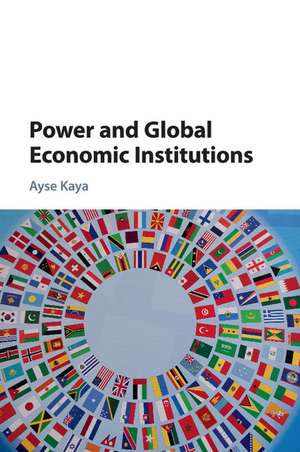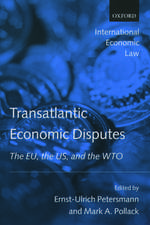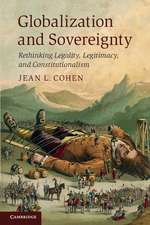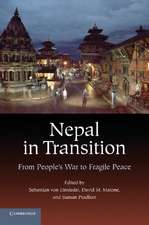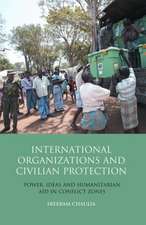Power and Global Economic Institutions
Autor Ayse Kayaen Limba Engleză Paperback – 15 noi 2017
| Toate formatele și edițiile | Preț | Express |
|---|---|---|
| Paperback (1) | 237.77 lei 3-5 săpt. | +15.34 lei 7-13 zile |
| Cambridge University Press – 15 noi 2017 | 237.77 lei 3-5 săpt. | +15.34 lei 7-13 zile |
| Hardback (1) | 699.45 lei 6-8 săpt. | |
| Cambridge University Press – 18 noi 2015 | 699.45 lei 6-8 săpt. |
Preț: 237.77 lei
Nou
Puncte Express: 357
Preț estimativ în valută:
45.50€ • 47.63$ • 37.65£
45.50€ • 47.63$ • 37.65£
Carte disponibilă
Livrare economică 15-29 martie
Livrare express 01-07 martie pentru 25.33 lei
Preluare comenzi: 021 569.72.76
Specificații
ISBN-13: 9781107544062
ISBN-10: 1107544068
Pagini: 297
Ilustrații: 7 b/w illus. 23 tables
Dimensiuni: 153 x 230 x 15 mm
Greutate: 0.4 kg
Editura: Cambridge University Press
Colecția Cambridge University Press
Locul publicării:New York, United States
ISBN-10: 1107544068
Pagini: 297
Ilustrații: 7 b/w illus. 23 tables
Dimensiuni: 153 x 230 x 15 mm
Greutate: 0.4 kg
Editura: Cambridge University Press
Colecția Cambridge University Press
Locul publicării:New York, United States
Cuprins
1. Introduction; 2. Conceptualizing political asymmetries in multilateral economic institutions; 3. The origins of states' formal equality in the global financial institutions; 4. The origins of states' voting equality in the post-war multilateral trading system; 5. Shifts in political power in the IMF in 2008–10; 6. Shifts in political power in the World Bank in 2008–10; 7. The G20: a delegatory institution; 8. Conclusions.
Recenzii
'This ambitious study opens up the black box of how power and institutions interact in the rapidly changing post-Crisis world of global economic governance. Kaya exposes the tensions between the formal and informal faces of power in the struggle to influence both rules and outcomes across the World Bank, the IMF, and the emerging G20 process. Her analysis tells us that where the 'declining old' might prove too slow in ceding their formal institutional prerogatives, the 'rising new' may up the ante and take the game elsewhere to new forums. Global governance thus becomes less predictable and institutions less effective at adapting to the need for change. In short, Kaya's analysis shows us how familiar institutions remain a potentially fragile part of an increasingly fragile world order. A 'must' for scholars and students alike.' Geoffrey Underhill, University of Amsterdam
'Increasingly, students of international political economy are returning to consideration of the role of power in the functioning of the world economy. With this thoughtful analysis, Ayse Kaya makes a notable contribution to current debates, focusing in particular on the relationship between the economic power of states and formal power in multilateral institutions. Even seasoned specialists will find much to learn in this knowledgeable and well-crafted study.' Benjamin Jerry Cohen, University of California, Santa Barbara
'Increasingly, students of international political economy are returning to consideration of the role of power in the functioning of the world economy. With this thoughtful analysis, Ayse Kaya makes a notable contribution to current debates, focusing in particular on the relationship between the economic power of states and formal power in multilateral institutions. Even seasoned specialists will find much to learn in this knowledgeable and well-crafted study.' Benjamin Jerry Cohen, University of California, Santa Barbara
Notă biografică
Descriere
Ayse Kaya analyses the relationship between states' economic power and their political power in key multilateral economic institutions.
